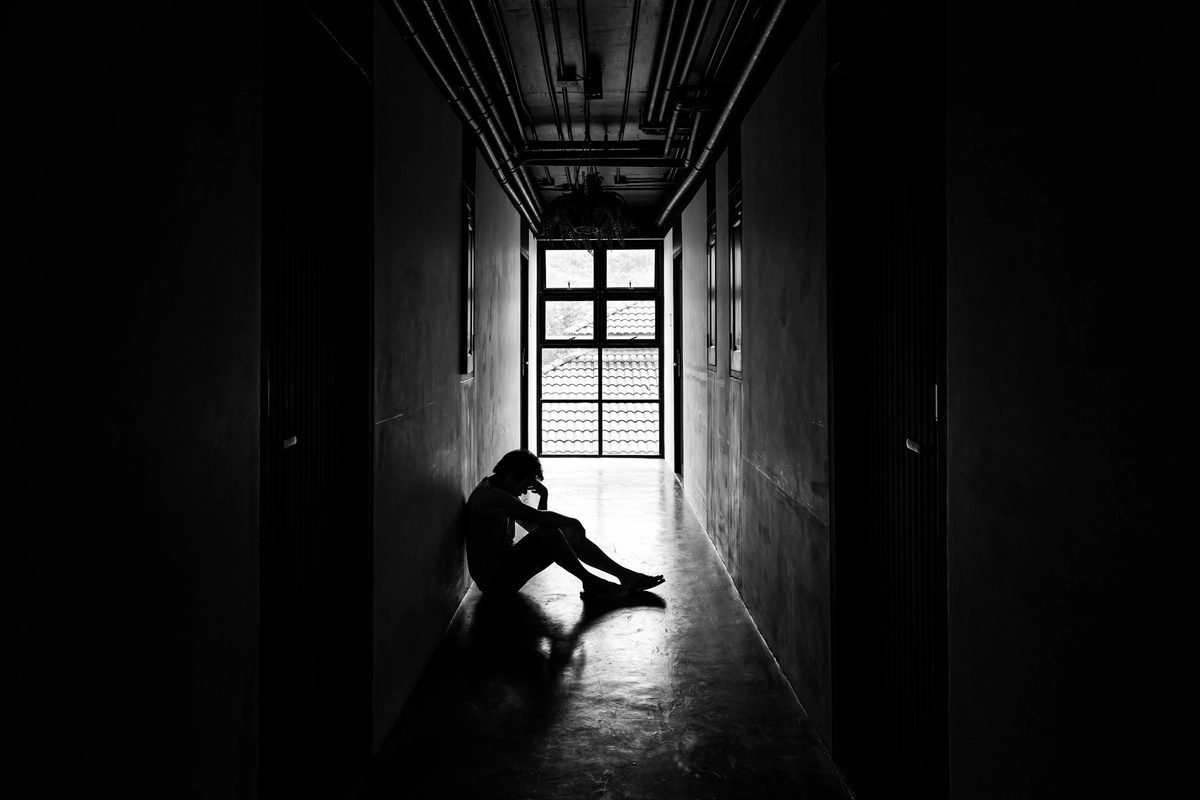Schizoaffective Disorder: Understanding the Signs, Symptoms, and Treatment


Did you know that around 1 out of 200 people are affected by schizoaffective disorder? Understanding this complex mental health condition is crucial for providing support and care to those impacted. By increasing awareness and knowledge about mental disorders like schizoaffective disorder, we aim to reduce stigma and promote empathy towards individuals facing schizoaffective disorder and other mental illnesses.
Understanding Schizoaffective Disorder
Schizoaffective disorder is a mental health condition characterized by a mix of schizophrenia symptoms, such as hallucinations and delusions, along with mood disorder symptoms. Unlike schizophrenia, individuals with schizoaffective disorder experience persistent psychotic symptoms alongside mood disturbances.
The early diagnosis of schizoaffective disorder is crucial for effective management. Timely identification allows for the implementation of appropriate treatment strategies to address both psychotic and mood-related symptoms.
Schizoaffective disorder is categorized into two main types: Bipolar type and Depressive type.
The Types of Schizoaffective Disorder
The bipolar type involves episodes of mania or hypomania in addition to depressive and psychotic symptoms. In contrast, the depressive type primarily features major depressive episodes alongside manic phases.
Distinguishing between these types is vital as it influences the treatment approach. Individuals with the bipolar type may require mood stabilizers to manage manic episodes effectively, while those with the depressive type might benefit more from antidepressants combined with antipsychotic medications.
Symptoms Overview
Individuals with schizoaffective disorder may exhibit a range of symptoms, including hallucinations, delusions, disorganized thinking, and mood fluctuations. These symptoms can significantly impact daily life activities, relationships, and overall functioning.
Symptoms can vary widely among individuals, with some experiencing more pronounced psychotic features while others primarily struggle with mood disturbances.
Like any other mental disorder, seeking professional evaluation is essential if someone displays signs of schizoaffective disorder to receive an accurate diagnosis, the right treatment response, and tailored treatment.

Recognizing the Signs of Schizoaffective Disorder
Schizoaffective disorder presents a unique combination of psychotic symptoms and mood disturbances. Patients may experience hallucinations, delusions, disorganized thinking, and unusual behaviors alongside significant mood changes.
These symptoms can vary in intensity and duration, impacting daily functioning and relationships. Recognizing these signs early is crucial for a correct schizoaffective disorder diagnosis, timely intervention, and effective management of the disorder.
Mood Swings
Mood disturbances are a characteristic feature of schizoaffective disorder. Individuals may experience intense episodes of mania (elevated or irritable mood) and depression. These periods can last for weeks or months and significantly disrupt daily life.
When manic, individuals may display hyperactivity, increased energy levels, impulsive behavior, and inflated self-esteem. On the other hand, during depressive episodes, individuals may feel hopeless, experience changes in sleep and appetite, and have difficulty concentrating.
Psychotic Symptoms
Psychotic symptoms can manifest as hallucinations (seeing or hearing things that are not real) or delusions (firm beliefs that are not based on reality). These experiences can be distressing and confusing for the individual.
Hallucinations can involve seeing people or objects that are not present or hearing voices. Delusions can take various forms, such as believing in conspiracy theories, having a special power, or feeling persecuted.
Disorganized Thinking and Behavior
Disorganized thinking is another key symptom of schizoaffective disorder. Individuals may have difficulty organizing their thoughts and expressing themselves coherently. They may also display odd or unpredictable behaviors that others find challenging to understand.
Social Withdrawal
Individuals with schizoaffective disorder may withdraw from social interactions and have difficulty maintaining relationships. This can arise due to a combination of factors, such as feeling overwhelmed by symptoms, stigma, and challenges in communication.
Suicidal Thoughts
Individuals with schizoaffective disorder are at an increased risk of suicidal thoughts and behaviors due to the distress caused by their symptoms. Warning signs may include talking about death or suicide, expressing feelings of hopelessness or worthlessness, and withdrawing from social interactions. It is essential to take any mention of suicidal ideation seriously and seek immediate help from mental health professionals or crisis hotlines.
When to Seek Help
Seeking professional help for suspected schizoaffective disorder is vital when symptoms significantly impact daily life or pose a risk to oneself or others. Family and friends play a crucial role in supporting individuals to seek treatment by offering encouragement, understanding, and assistance in accessing mental health services. In emergencies where immediate intervention is required, contacting local crisis hotlines or taking the individual to the nearest emergency room can ensure prompt care and support.
Are You Struggling with Mental Health or Addiction?
We Can Help. Call Us Now!
CALL: 877-839-1772
Exploring Treatment Options for Schizoaffective Disorder
While there is no cure for schizoaffective disorder, it is a treatable condition. Treatment plans typically involve a combination of psychiatric treatment, medication, therapy, and support from loved ones.
Medical Treatments
Medical treatments for schizoaffective disorder play a crucial role in managing its symptoms. Medications are commonly prescribed to stabilize mood and reduce psychotic symptoms. Antipsychotics, mood stabilizers, and antidepressants are often part of the treatment plan.
Regular monitoring by healthcare providers is essential to assess the effectiveness of medications and make any necessary adjustments. Adherence to the prescribed medication regimen is vital for treatment success.
Support From Loved Ones
Support and understanding from family, friends, and caregivers can make a significant difference in the recovery process. Encouraging individuals to stick to their treatment plans and providing a safe and non-judgmental environment can promote positive outcomes.
Therapy Approaches
In addition to medications, various therapy approaches can complement the treatment plan for individuals with schizoaffective disorder. Individual therapy allows for personalized sessions with a mental health professional to address specific challenges and develop coping strategies. Group therapy provides a supportive environment where individuals can share experiences and learn from one another. Family therapy involves family members in the treatment process, enhancing communication and support systems.
Therapy plays a significant role in improving coping skills and enhancing overall well-being for individuals with schizoaffective disorder. The combination of medication and therapy can lead to better symptom management and quality of life improvement.
Hospitalization
In severe cases, hospitalization may be necessary to stabilize symptoms and ensure the safety of individuals with schizoaffective disorder. This can be a challenging experience for both the individual and their loved ones, but it is an essential step towards recovery.
Causes and Risk Factors for Schizoaffective Disorder
The exact cause of schizoaffective disorder is unknown, but research suggests that a combination of genetic, environmental, and neurochemical risk factors may contribute to its development, similar to other psychiatric disorders.
Genes
Schizoaffective disorder is a complex condition with potential causes stemming from both genetic and environmental factors. Genetic predisposition, such as a family history of schizophrenia or mood disorders, plays a significant role in the development of this disorder. Research indicates that certain gene variations may increase susceptibility to schizoaffective disorder.
Environment
Environmental factors, including prenatal exposure to toxins or infections, can also contribute to the onset of the condition. Ongoing research aims to unravel the intricate interplay between genetic vulnerabilities and environmental influences in causing schizoaffective disorder.
Brain Chemistry
Imbalances in the brain's neurotransmitters, such as dopamine and serotonin, have been linked to schizoaffective disorder. These chemicals play a critical role in regulating mood, perception, and thought processes.
Stress
Stressful life events, such as trauma or loss, can also elevate the risk of developing schizoaffective disorder by triggering underlying vulnerabilities.
Substance Abuse
Substance abuse, particularly drugs like cannabis or stimulants, can exacerbate symptoms and contribute to the progression of the disorder.
Despite advancements in scientific understanding, pinpointing specific causes and risk factors for schizoaffective disorder remains challenging. The disorder’s multifaceted nature makes it difficult to isolate individual triggers definitively.
Ongoing Research
Researchers and clinicians continue to investigate various biological, psychological, and social factors that may contribute to the development of schizoaffective disorder. By delving deeper into these complexities, experts strive to enhance diagnostic accuracy and develop targeted interventions for affected individuals.
Recognizing these risks underscores the importance of early intervention and support for individuals at risk of developing schizoaffective disorder. Timely identification of predisposing factors allows for proactive measures to mitigate potential harm and promote mental well-being.
By addressing genetic susceptibilities through targeted interventions and providing psychological support during stressful periods, healthcare professionals can help reduce the likelihood of developing this challenging condition.
Are You Struggling with Mental Health or Addiction?
We Can Help. Call Us Now!
CALL: 877-839-1772
What Are the Differences Between Schizoaffective Disorder and Bipolar Disorder?
Bipolar disorder and schizoaffective disorder are distinct psychotic mood disorders with unique characteristics. Schizoaffective disorder combines symptoms of mood disorders like bipolar disorder with features of schizophrenia.
Bipolar Disorder
In bipolar disorder, individuals experience alternating periods of mania and depression, while schizoaffective disorder involves both mood episodes and psychotic symptoms concurrently.
Schizoaffective Disorder
The diagnostic criteria for schizoaffective disorder require the presence of a major mood episode along with psychotic symptoms, such as hallucinations or delusions, for at least two weeks without prominent mood symptoms.
One crucial difference between the two disorders is that in bipolar disorder, psychotic symptoms only occur during mood episodes, whereas in schizoaffective disorder, they can manifest independently.
Overlapping Features and Unique Aspects
Despite their differences, bipolar disorder and schizoaffective disorder share some overlapping features. Both conditions involve disturbances in mood regulation and can significantly impact an individual's daily functioning.
However, what sets schizoaffective disorder apart is the presence of persistent psychotic symptoms even when mood symptoms are not predominant. This combination makes diagnosis and treatment complex compared to bipolar disorder.
It is essential for healthcare providers to carefully evaluate the patient's symptoms to accurately differentiate between these disorders due to their overlapping nature.

Addressing Complications of Schizoaffective Disorder
Schizoaffective disorder, like other psychotic disorders, can significantly impact an individual's daily life, relationships, and overall well-being.
Common Complications
Untreated schizoaffective disorder can lead to a myriad of problems. Individuals may experience worsening symptoms, cognitive decline, and difficulty in maintaining relationships. The lack of proper management can result in a downward spiral of mental health challenges.
Impaired Functioning
Impaired functioning is a significant complication associated with untreated schizoaffective disorder. This can manifest as the inability to perform daily tasks, hold down a job, or engage in meaningful social interactions. The individual's overall quality of life is greatly diminished when these functional impairments persist.
Substance Abuse
Individuals with schizoaffective disorder may turn to drugs or alcohol as a way to cope with symptoms.
However, substance abuse can worsen symptoms and interfere with treatment.
Suicidal Thoughts
Individuals with schizoaffective disorder are at a higher risk of suicidal thoughts or behaviors. It is crucial to seek help if you or a loved one experiences these symptoms.
Isolation
Social isolation is another common complication that arises from schizoaffective disorder. Due to the nature of the illness, individuals may withdraw from social life and social activities, leading to loneliness and feelings of alienation. This isolation can further exacerbate their mental health struggles and contribute to a sense of hopelessness.
Early Treatment
Early intervention plays a crucial role in preventing or minimizing the complications linked to schizoaffective disorder. By seeking timely treatment, individuals have a better chance of managing their symptoms effectively, improving their overall functioning, and reducing the risk of long-term complications. Supportive therapies, medication management, and regular monitoring are key components of early intervention strategies.
Are You Struggling with Mental Health or Addiction?
We Can Help. Call Us Now!
CALL: 877-839-1772
Understanding the Effects of Schizoaffective Disorder
Schizoaffective disorder can significantly impact an individual's everyday life, making it challenging to manage responsibilities and maintain relationships.
Prognosis Overview
Individuals diagnosed with schizoaffective disorder often face a complex journey, but understanding the prognosis can provide clarity. The long-term outlook for those with this condition varies significantly, influenced by multiple factors. Factors such as treatment adherence, support systems, and early intervention play crucial roles in shaping the prognosis.
Management Strategies
While schizoaffective disorder can present challenges, appropriate care and management strategies can greatly impact the individual's quality of life. By actively engaging in treatment plans, including medication regimens and therapy sessions, individuals can experience significant improvements in symptom management. Having a strong support system comprising family, friends, healthcare professionals, and community resources is pivotal in enhancing outcomes.
Hope After Treatment
Despite the complexities associated with schizoaffective disorder, there is potential for individuals to lead fulfilling lives with the right interventions. Through consistent monitoring of symptoms, adjusting treatment approaches as needed, and fostering a supportive environment, individuals can achieve stability and well-being. It is important to recognize that each person's journey with schizoaffective disorder is unique, requiring personalized care tailored to their specific needs.
Prospective improvement: With proper treatment and support, individuals can experience a reduction in symptoms over time.
Enhanced quality of life: Effective symptom management can lead to an improved overall quality of life for those living with schizoaffective disorder.
Long-term stability: By adhering to treatment plans and accessing necessary support services, individuals can achieve long-term stability.

Living with Schizoaffective Disorder
Living with schizoaffective disorder can be challenging, but it is possible to manage and live a fulfilling life with proper treatment and support.
Daily Impact
Living with schizoaffective disorder can profoundly affect one's daily life, from simple tasks to complex interactions. Individuals may struggle to maintain routines, relationships, and mental well-being. The symptoms of this disorder, such as hallucinations and mood disturbances, can disrupt daily activities significantly.
Life Challenges
Challenges arise in various aspects of life, including work, education, and social engagements. Holding down a job becomes difficult due to psychotic symptoms, leading to absenteeism or reduced productivity. Attending school may be disrupted by mood swings or cognitive impairments. Social interactions can become strained due to the unpredictable nature of the disorder.
Support Systems
To navigate these challenges effectively, individuals need a robust support system. Family members, friends, and healthcare providers play crucial roles in providing emotional support and practical assistance. Community resources like support groups or therapy sessions can offer additional help in coping with the diagnosis.
Building Support Systems
Building a strong support system is essential for individuals battling schizoaffective disorder. Family members can offer understanding and encouragement during difficult times while friends provide companionship and social connections. Healthcare providers monitor the condition and adjust treatment plans accordingly.
Community Resources
Community resources such as mental health clinics or peer support groups offer valuable assistance in managing the disorder effectively. These external networks provide a sense of belonging and understanding that is crucial for individuals grappling with the complexities of psychotic illnesses.
Creating a supportive environment involves fostering open communication, empathy, and patience. Encouraging individuals to adhere to their treatment plans and attend therapy sessions regularly can make a significant difference in their overall well-being. Educating oneself about the disorder helps in understanding its nuances and challenges better.
Are You Struggling with Mental Health or Addiction?
We Can Help. Call Us Now!
CALL: 877-839-1772
Closing Thoughts
From this information, you've gained a comprehensive understanding of schizoaffective disorder, from its signs and causes to treatment options and outcomes. By recognizing the complexities of this condition, you're better equipped to differentiate it from other disorders and address potential complications. Living with schizoaffective disorder requires resilience and a proactive approach to managing symptoms.
Take charge of your well-being by seeking professional help, adhering to treatment plans, and fostering a supportive environment. Educate yourself and others about schizoaffective disorder to reduce stigma and promote understanding. Remember, you're not alone in this journey – reach out to loved ones, support groups, or mental health professionals for guidance and assistance.
Treatment For Schizoaffective Disorder in Orange County
A complex and devastating mental disorder, schizoaffective disorder makes regular life all but impossible. The mood swings and other symptoms combine to create a genuinely dangerous problem...especially if it's left untreated.
Fortunately, schizoaffective disorder responds well to treatment. The Forge Recovery Center provides expert care for schizoaffective disorder and related issues. Guided by a trauma-informed approach, our team works to help each individual heal and rebuild their lives.
Contact The Forge Recovery Center today to learn more and take the first step towards recovery. You don't have to face this disorder alone - help is available, and recovery is possible.



